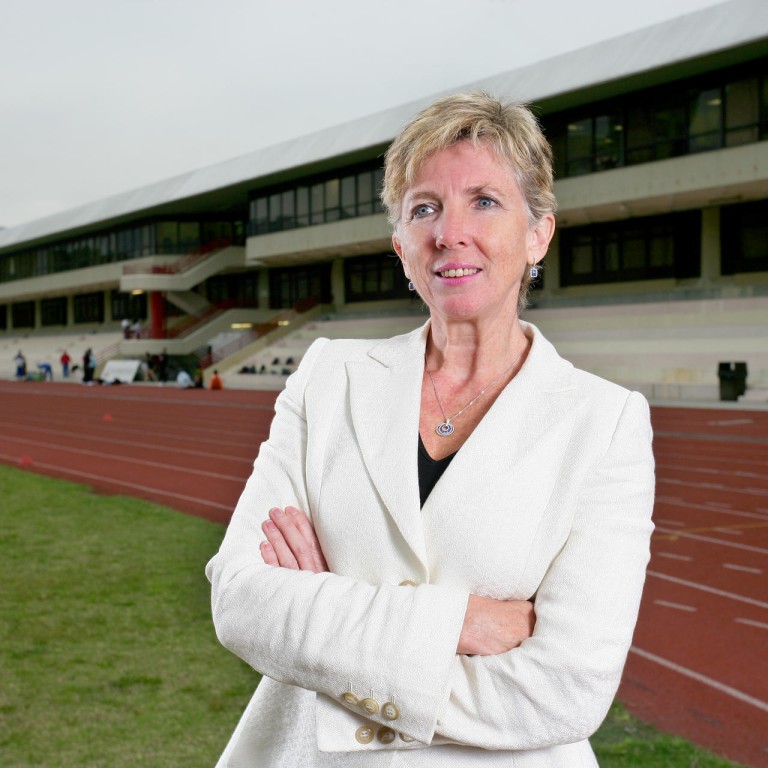
Asian Games medals demanded as government stumps up HK$376 million for elite athletes
The 9 per cent rise in funding means 15 sports will be closely watched to ensure they justify their status
Fifteen elite sports will come under extra scrutiny at September's Asian Games in Incheon, South Korea, with the government increasing its support to the Hong Kong Sports Institute by 9 per cent - or HK$51 million - to HK$376 million for the fiscal year.
"Our goal has always been to compete on the world stage and the return on investment has to be an improvement on results from the last Asian Games," said HKSI chief executive Trisha Leahy. "We got 100 per cent of the funding that we asked for from the government and we are grateful for the support. Now we have to show results."
Hong Kong won 40 medals (eight golds, 15 silver and 17 bronze) at the 2010 Asian Games in Guangzhou, with 36 coming from Tier A sports. The other four were won by equestrian, rugby sevens and BMX and mountain biking. The latter two were not part of the cycling programme at the HKSI.
Under new Tier A criteria, sports have to get a medal at the Asian Games, world championships or qualify for the Olympic Games to retain their status
"We have 16 Tier A sports now but one sport, billiards, is not competing in Incheon. So we are targeting improved results from the 15 elite sports who are attending," Leahy said.
"Under new Tier A criteria, sports have to get a medal at the Asian Games, world championships or qualify for the Olympic Games to retain their status."
The Sports Commission endorsed funding of HK$376 million to the HKSI from the Elite Athletes Development Fund (EADF), which was established in 2011 with a one-off grant of HK$7 billion. Home Affairs Bureau official Jonathan McKinley said the EADF stood at HK$6.94 billion.
"Our aim is for the annual allocation from the EADF to the HKSI to come from income generated by the fund. However, we can top this up if necessary by dipping into the fund capital in case the income is insufficient to meet the needs of the HKSI. By the same token, if the income exceeds the HKSI requirements in any one year, then the surplus is added back to the fund," said McKinley, deputy secretary for Home Affairs.
The EADF is largely invested with the Hong Kong Monetary Authority and it is mostly on the return on investments that elite sport is fuelled.
"We started funding the government allocation to the HKSI from the EADF immediately upon establishment of the fund and before it had time to generate any income. This largely explains why we are HK$60 million 'down' at the end of March, 2014," McKinley said.
The HKSI's total budget for this financial year is HK$431 million, with the HK$55 million shortfall to be made up by Hong Kong Jockey Club sponsorship, and income derived from hiring out facilities.
"We have to present a business plan detailing our expenditure for the year, which is HK$431 million, and our projected income. Based on this we ask for funding and I'm happy to say we have received all of what we asked for from the EADF," Leahy said. "Of this HK$431 million, 77 per cent, or HK$332 million, will go towards athletes' costs for the 16 core sports."
We are pushing all sports to increase their numbers of full-time athletes for the ultimate aim is to have more podium-ready athletes across the board
This money will be spent on direct financial support for elite athletes, overseas training costs, competition, coaching, sports science and sports medicine.
"We have a total of 256 athletes training full time [last year there were 211]. The increase is right across the board and not only due to rugby sevens coming on board as an elite sport," Leahy said. "We are pushing all sports to increase their numbers of full-time athletes for the ultimate aim is to have more podium-ready athletes across the board."
There are 753 elite athletes in 16 elite sports (649 athletes), plus 10 under the Individual Athlete Support Scheme (55) as well as seven Paralympic sports (49).

